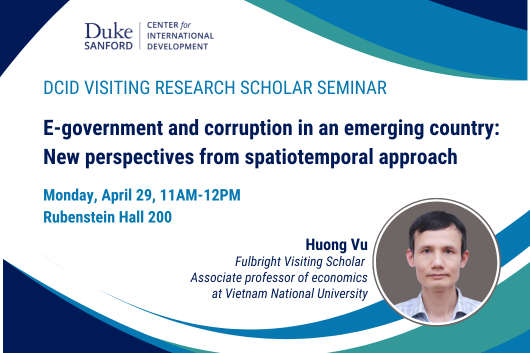E-government and corruption in an emerging country: New perspectives from spatiotemporal approach

What are the patterns and effects of e-government on corruption across space and time? While there has been a growing focus on the role of e-government in corruption, the spillover effects of digital government on corruption remain relatively unexplored. Huong Vu, a Fulbright Visiting Scholar at the Duke Center for International Development, will discuss his paper, "E-government and corruption in an emerging country: New perspectives from spatiotemporal approach." The paper implements emerging hot spot analysis and geographically and temporally weighted regression (GTWR) to examine the heterogeneity in linkage between e-government and corruption across Vietnam. In so doing, it draws on social contract theory as well as informal payments and e-government data over the 2018-2022 period. Subsequently, emerging hot spot analysis indicates corruption is declining in every Vietnamese region. At the same time, GTWR highlights variations in the impact of e-government on corruption between the North and the South, suggesting the need for targeted improvements in e-government to achieve maximum reductions in corruption. These findings underscore the importance of integrating social contract theory into discussions on e-government and corruption.






